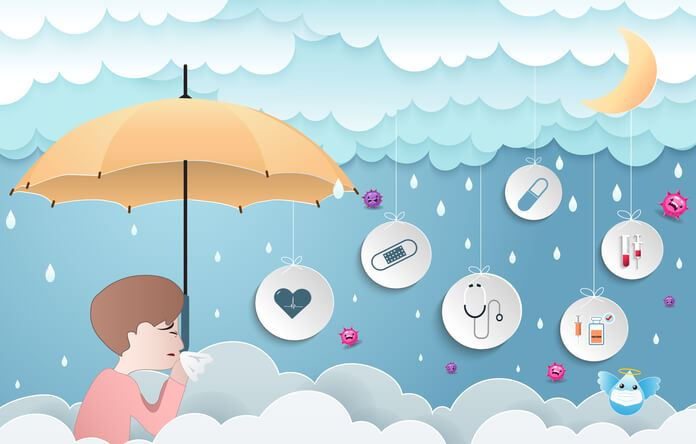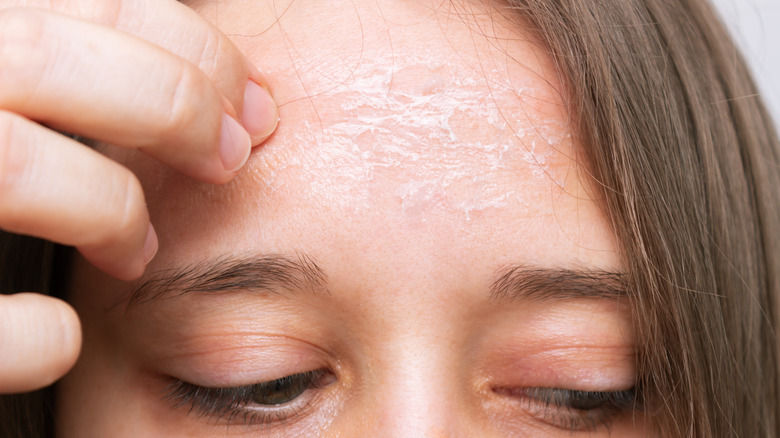Monsoon Health Myths: What You Need to Stay Safe and Strong
- MedWords Editorial

- Aug 20, 2025
- 3 min read
Updated: Aug 22, 2025

The monsoon season brings a much-needed break from the summer heat, but it also brings with it its own set of health challenges and a fair share of myths. From warnings about not eating leafy vegetables to the idea that you’ll catch a cold if you get wet in the rain, there’s no shortage of advice passed down from family and friends. But how much of it is true? Let’s separate the facts from the myths so you can stay safe, healthy, and enjoy the season without unnecessary worries.
Myth 1: Getting Wet in the Rain Will Give You a Cold
This is probably the most common monsoon myth. While shivering in wet clothes is uncomfortable, colds and flu are caused by viruses, not rainwater. What’s true is that dampness can lower your body temperature and make you more vulnerable to infections if your immunity is already low. The real risk comes from exposure to germs, especially in crowded spaces.
Fact: If you get soaked, change into dry clothes quickly to stay comfortable, but don’t worry; you won’t “catch” a cold directly from rain.
Myth 2: Leafy Vegetables Should Be Completely Avoided
Many people believe leafy greens are a big no-no during the monsoon because they carry dirt and germs. While it’s true that waterlogged soil can make vegetables more prone to contamination, it doesn’t mean you should cut them out of your diet entirely.
Fact: Leafy greens like spinach, fenugreek, and kale are packed with nutrients your body needs. Just make sure you wash them thoroughly in clean water and cook them well before eating.
Myth 3: Street Food Is Always Unsafe
There’s a popular warning to “stay away from all street food” during the rains. While it’s wise to be cautious, not all street food is automatically unsafe. The real issue is hygiene water contamination is more common in the monsoon, and improperly handled food can cause stomach infections.
Fact: If you crave chaat or pakoras, go for stalls you know maintain good hygiene and ensure the food is freshly cooked and served hot.
Myth 4: You Should Drink Less Water in Monsoon
Because the weather is cooler and you sweat less, many people unconsciously reduce their water intake. Some even believe drinking too much water during this season causes bloating or indigestion.
Fact: Hydration is just as important in monsoon as in summer. Dehydration can still happen, especially if you drink more tea and coffee than plain water. Aim for at least 6–8 glasses of safe, filtered water daily.
Myth 5: Mosquitoes Are Only a Summer Problem
Mosquitoes thrive in the monsoon because stagnant water becomes their perfect breeding ground. Diseases like dengue, malaria, and chikungunya spike during this season, which makes protection crucial.
Fact: Use mosquito repellents, keep your surroundings clean, and make sure there’s no stagnant water in pots, buckets, or drains near your home.
Myth 6: Hot Drinks Can Prevent All Illnesses
There’s some truth here; herbal teas, ginger, and turmeric milk can help soothe the throat and improve digestion. But hot drinks alone won’t protect you from viral infections.
Fact: Think of warm drinks as comfort, not a cure. Pair them with a balanced diet, good hygiene, and adequate rest for better protection.
Final Thoughts
Monsoon is a beautiful season, but it comes with health risks that are often clouded by myths. Staying informed, practicing good hygiene, eating a balanced diet, and keeping your surroundings clean are your best defenses. Instead of avoiding entire food groups or living in fear of rain, focus on the basics: safe water, clean food, and preventive care. That way, you’ll enjoy the monsoon while keeping your health strong.



Comments